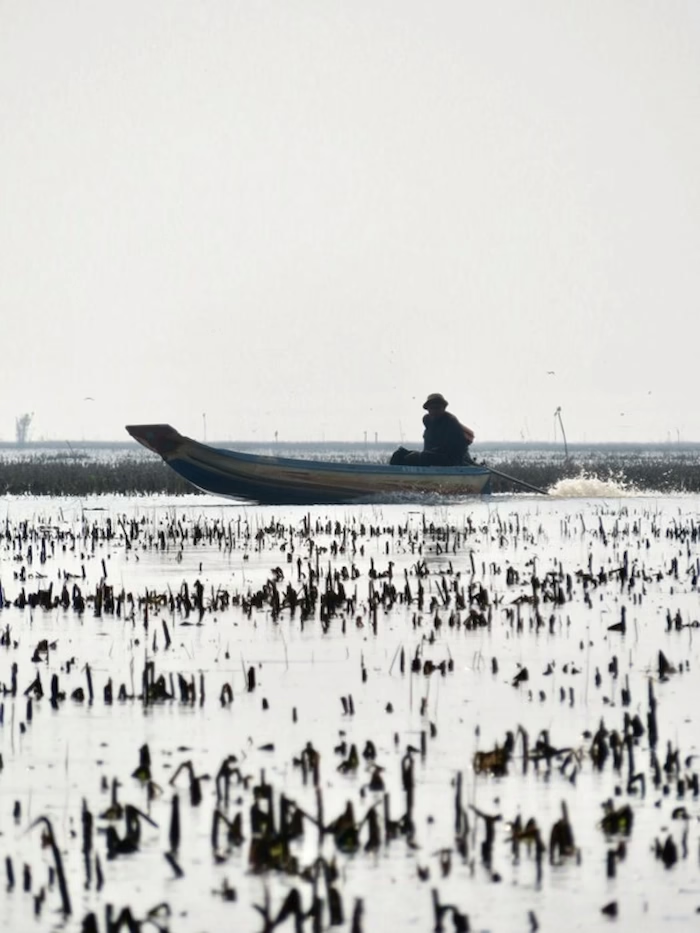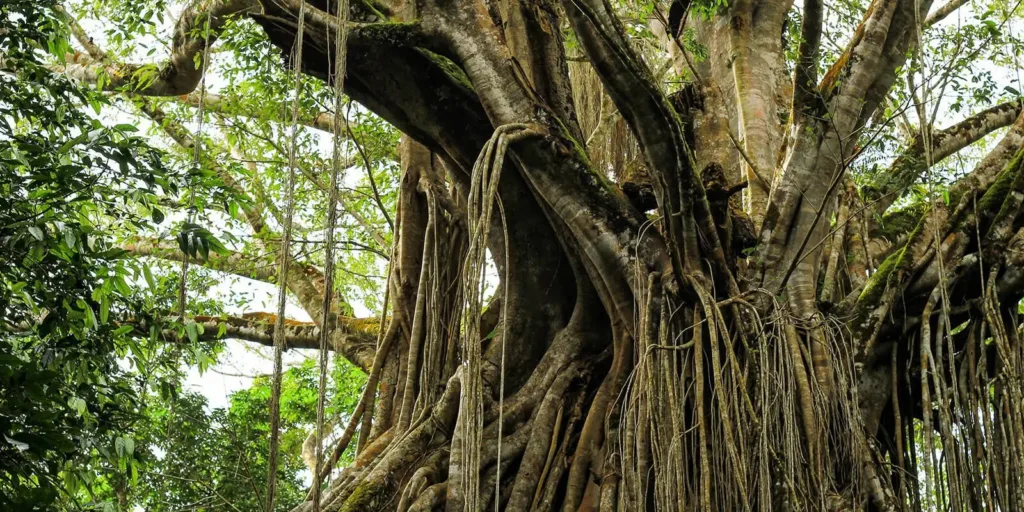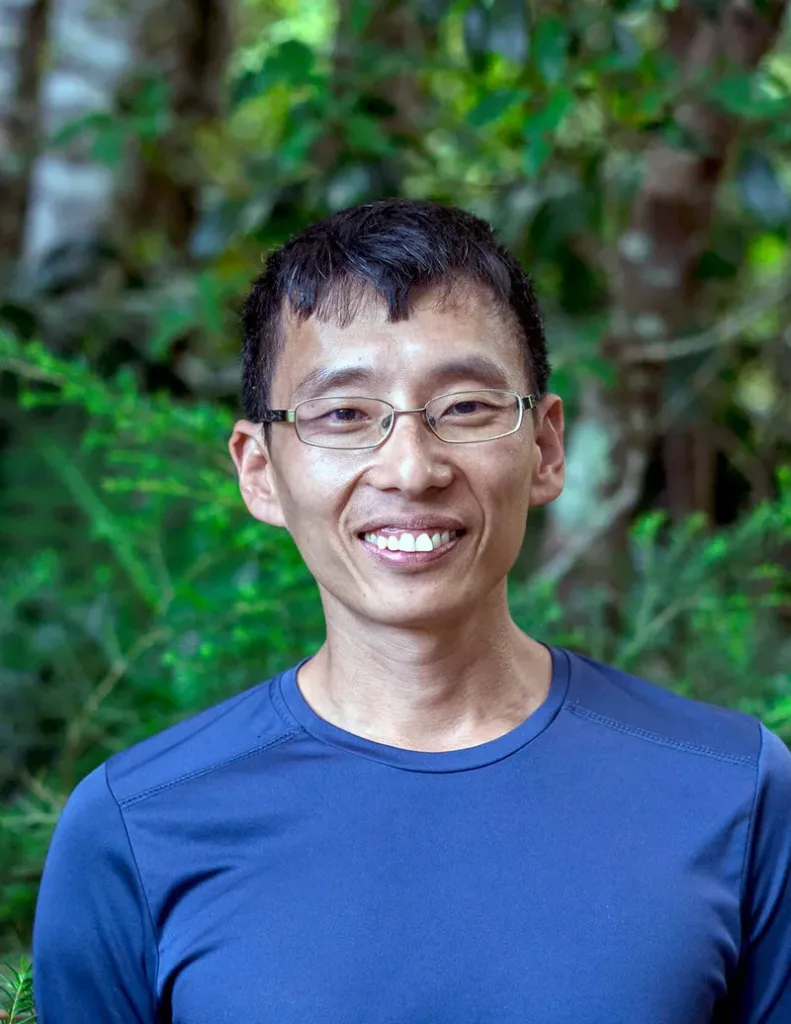
By: David Tng
The New Enchantment Expedition
The intention of the expedition was for the group to have a rainforest experience and to learn a little about how regenerative agriculture is a sustainable way to produce food and conserve the rainforest.– David, SFS Australia Center Director

A panoramic shot of the sight that greets visitors to the SFS Australia Center.
We have been missing the usual laughter of our students at the SFS Australia Center for Rainforest Studies, but we have been keeping ourselves busy and finding ways to bring activity to the Center. Promoting environmental literacy is part of the mission of SFS, and we do not need to limit this to undergraduates. And while Australia borders are still closed for international travel, we sought to reach out to local groups.
Recently, we were visited by a group of 24 wonderful people aged 3 to >50 years. The group consisted of members of the Brazilian non-profit environmental organization Novo Encanto (literally translated as “New Enchantment”) who currently reside in Australia, mostly in the southern states. Working closely with the organizers from the Novo Encanto group, we ran what is the first SFS-Novo Encanto expedition (23rd – 27th April). The intention of the expedition was for the group to have a rainforest experience and to learn a little about how regenerative agriculture is a sustainable way to produce food and conserve the rainforest.
Usually, we call our programs “courses” or “fieldtrips”, but we called this event an expedition, and words have latent power. Just by calling the event an expedition invokes the energy of one. Four days before our expeditioners arrive, some 500mm of torrential rain fell in the region, rendering our access road unnavigable for vehicles. It was too late to get the road regravelled before the group arrived. From then on getting into and out of the Center was a little trek through the rainforest for our expeditioners – the event was now truly an expedition.
And then the rain continued. But true expeditioners are not afraid of a little rain. Walks in and out of the Center gave our expeditioners, who are mostly city-dwellers, the opportunity to imbibe the rainforest environment and also interact and build camaraderie.
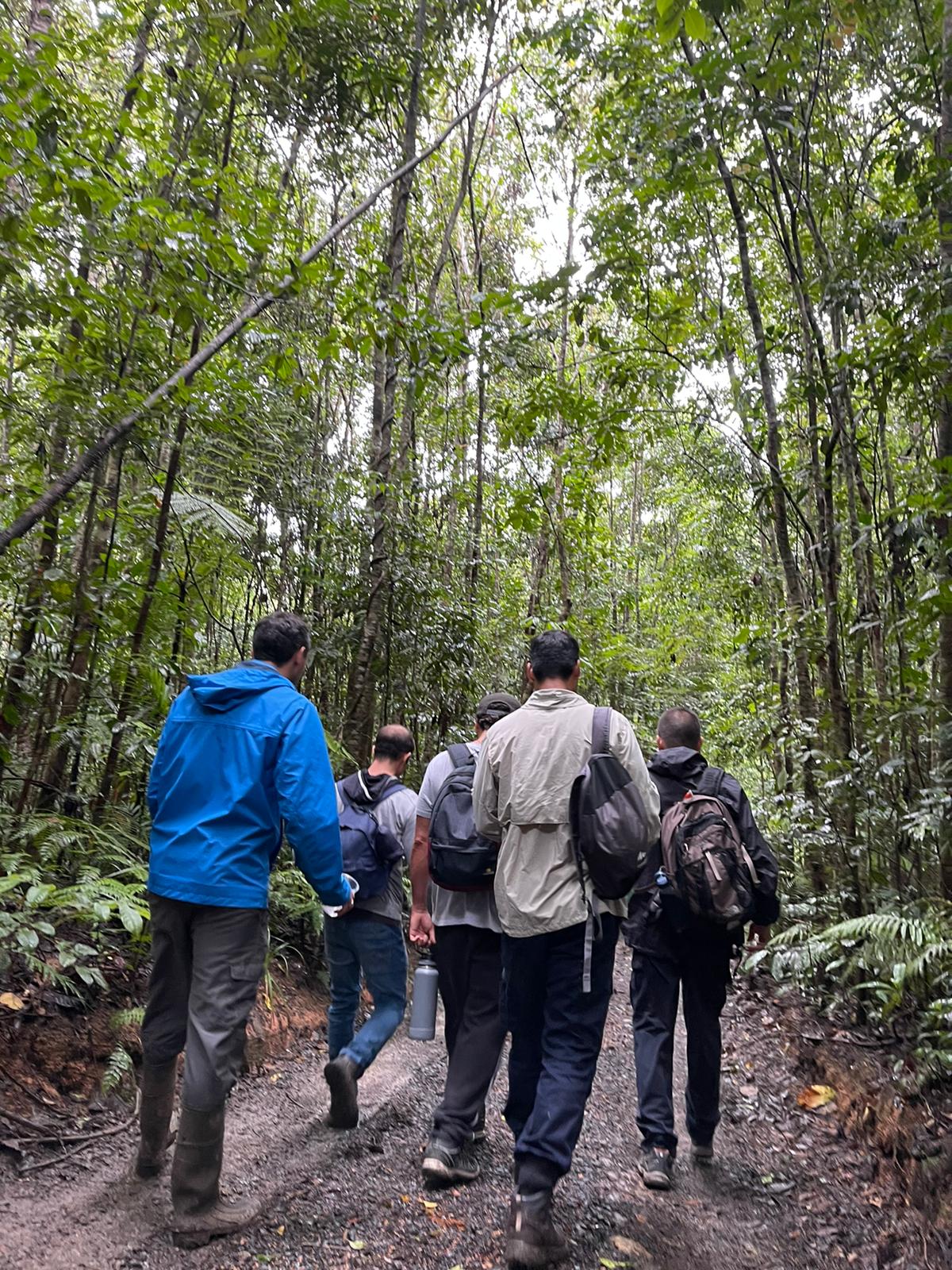
What is an expedition without some walking!
As part of the planned activities, we delivered lectures on regenerative agriculture and visited Petals in the Park, a Syntropic farm, where our hosts Neil and Jane Hawes showed everyone why regenerative agriculture is a pathway to a sustainable future for the world’s food needs and for the environment.
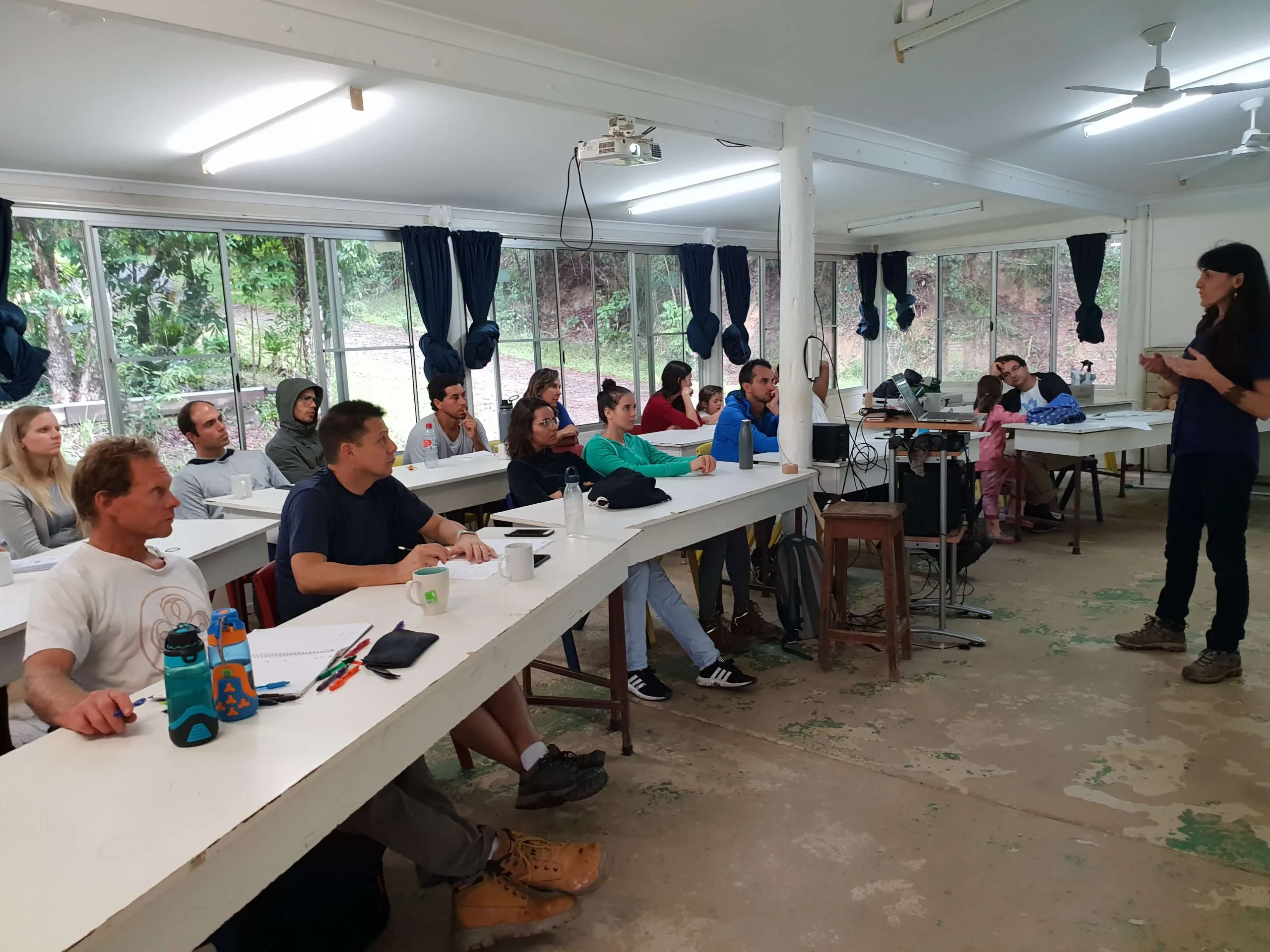
Dr. Deborah Apgaua gives a talk about regenerative agriculture.
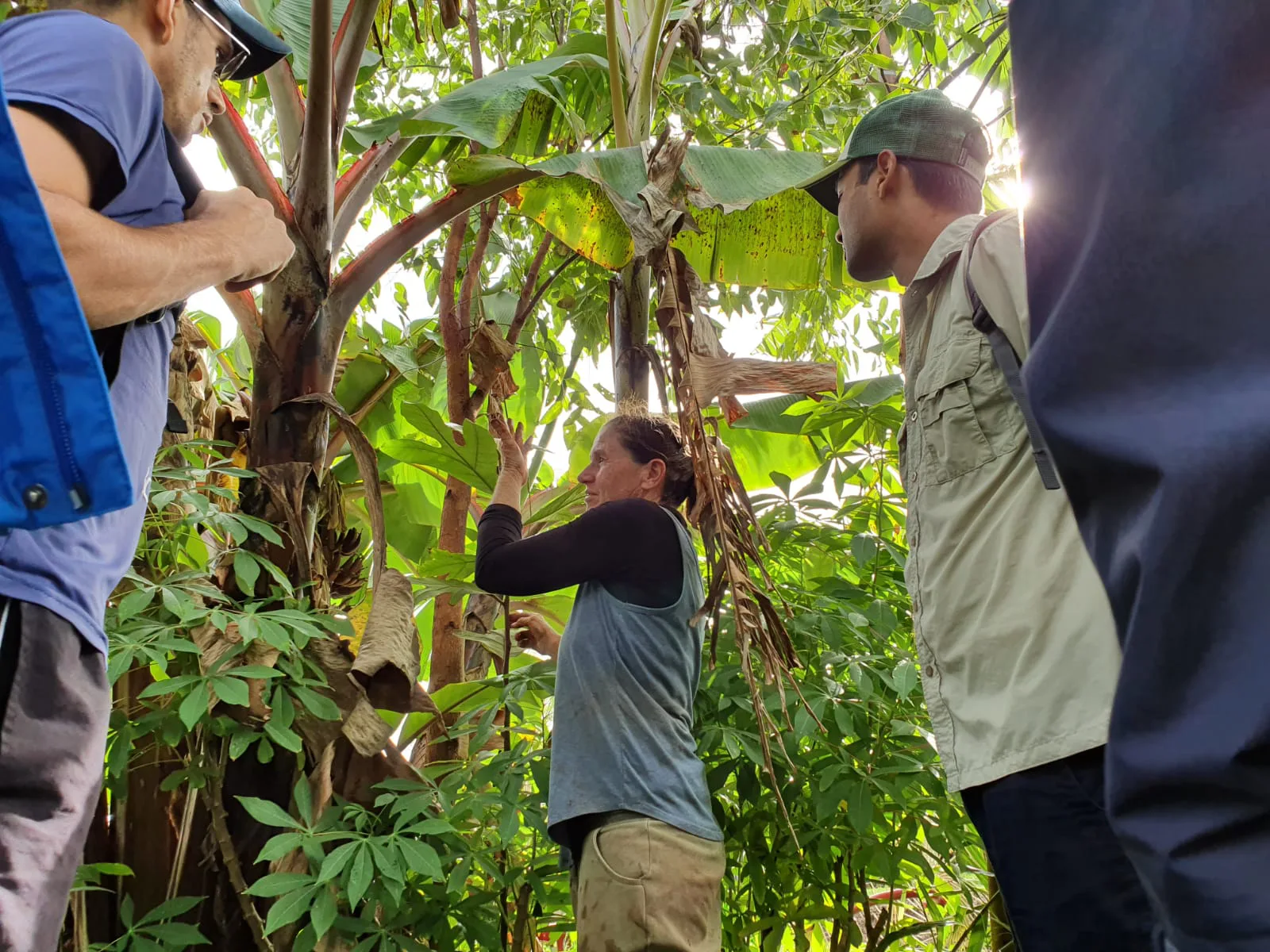
Getting the “real deal” of how a regenerative Syntropic farm looks and feels at the Petals in the Park farm in the Atherton Tablelands.
We also brought the group to visit some spots in the Atherton Tablelands, and in particular to see the iconic Curtain Fig Tree, a c. 500-year-old giant strangling fig. There we explained some of the fascinating intricacies of fig biology from the way strangling fig trees start their life in the forest canopy, to the way they get pollinated.
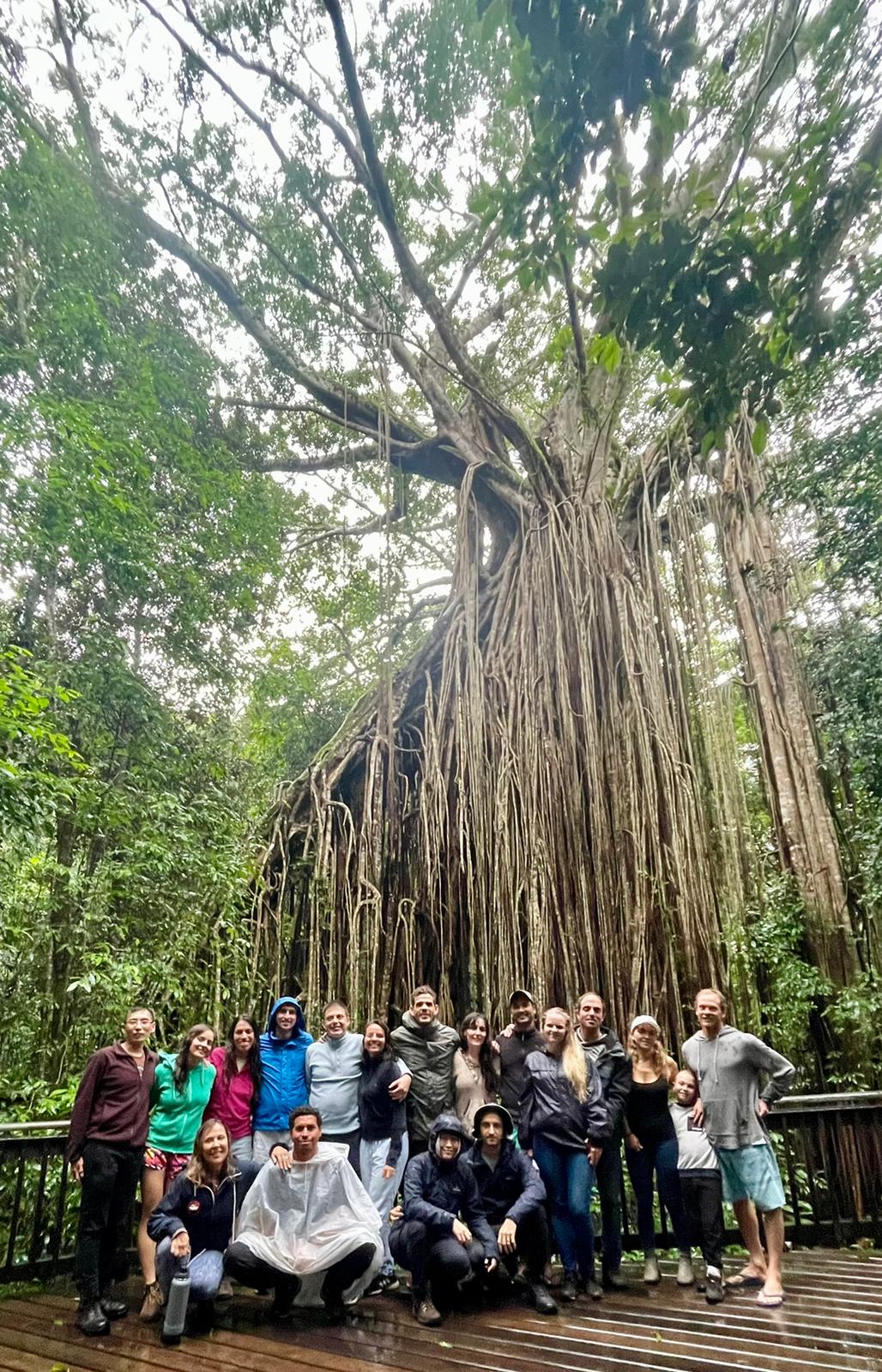
The iconic Curtain Fig tree of the Atherton Tablelands.
A visit to Australia’s Wet Tropics is never complete without a swim. So to top it off, we also brought expeditioners to have a swim and barbeque at the gorgeous Lake Eacham, a volcanic lake with azure waters and surrounded by lush rainforest.
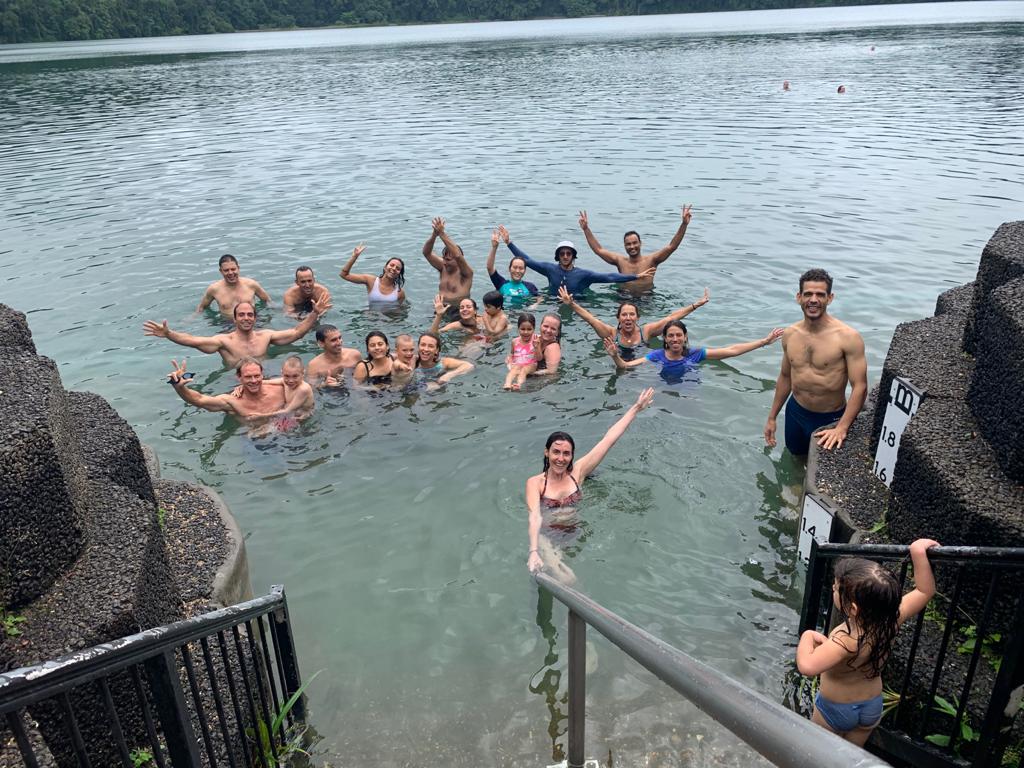
It will be hard to swim in a chlorinated pool after this…
Three days is a short time to spend in this marvellous part of the world, but we love to think that having the opportunity to spend some quality time in the tropical rainforest and to learn a little about ways we can have a more sustainable and green future is well worth it. We are hoping also to make such expeditions a more regular activity in the repertoire of the SFS Australia Center.
_______
Curious to learn a bit more about the SFS Australia Center? Click here to read about why we’re based there, our environmental research focus, how we connect and support the local community, and even take a tour of the Center.
Related Posts

Reuniting with Tanzania: Eric Walsh’s “Reunion Flag” Keeps the Spirit Alive
